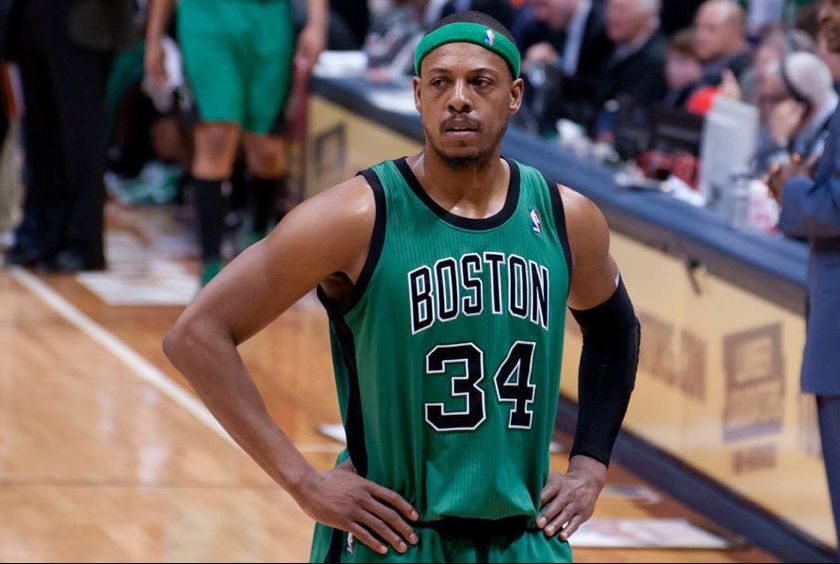Goodbye, Paul Pierce

Photo by Mark Runyon on Flickr
Sure, Tom Brady has won more championships. And Pedro was greater at his peak. But I’m not sure that there’s an athlete that’s meant more to Boston over the last 15 years than Paul Pierce. Brady has always existed in something of a bubble, more like a Hollywood star dropped into Foxboro than a real live human among us. And Pedro’s effervescent charm—and otherworldly pitching—won us over so quickly on his arrival that his whole tenure felt like a big K-fueled fiesta. But Pierce was work.
He came to town already with a chip on his shoulder, having expected to go in the 1998 draft’s top five selections, but slipping to the Celtics at pick 10. The next few years were a roller-coaster ride, from the struggles of the Pitino years and the nightclub stabbing incident in 2000 to the highs of the Celtics’ epic game 3 comeback in the 2002 Easter Conference Finals against (appropriately) the Nets. As the ups and downs rolled on, with Doc Rivers becoming coach in 2004, and Pierce seemed downright unhappy at times. “Personally, I think I’ve got split personalities, and I may need a psychiatrist. Dr. Jekyll and Mr. Hyde. Seriously. I’m serious about this,” Pierce was quoted saying in a profile of him in our April 2005, issue. John Wolfson (now the editor of this magazine) wrote the piece, and also observed:
Pierce has been eye-rollingly, shoulder-shruggingly adrift. He has looked bored and unhappy. He barely speaks with his coach, who has benched him three times. During a preseason game in October, he pushed right up to the edge of pro-sports delinquency, spitting at the Cleveland Cavaliers’ reserves following trash-talking rounds with Cavs’ phenom LeBron James.
Later, Wolfson wrote:
Earlier this season, I went to the Celtics practice facility in Waltham to watch the team scrimmage. New head coach Doc Rivers was hollering instructions but seemed to hardly notice Pierce at all. Pierce, in turn, declined to so much as look at Rivers, gazing at the floor while the coach addressed the team. The iciness was due in large part to the new fast-break offense Rivers had installed, which spread the scoring around rather than depending on Pierce’s abilities to take his man off the dribble or hit three-pointers. As he often had throughout the season, Pierce looked glum.
There’s also much talk in the story about how, with the departure of Antoine Walker, Pierce was uncomfortable being the center of attention, the one the media went to looking for answers.
Does that even sound anything remotely like the Paul Pierce we know today? He spent years working through his demons, with Celtics fans along for the ride the whole time. Now, he’s known as a steady ship, the leader of the team who was willing to sacrifice parts of his game when Kevin Garnett and Ray Allen came on board. Whenever Rajon Rondo’s been missing in action the last couple years—whether because of injury or suspension—we saw Pierce shift his game again to make up for the pointguard’s absence by being more of a distributor. Perhaps most tellingly, after last night’s news that he and Kevin Garnett are going to be traded to the Brooklyn Nets, much of the early talk has been about how Rondo will cope with being the media’s new go-to guy for answers. Once reticent, Pierce had become known for always being accountable to the press, answering the tough questions so his teammates didn’t have to.
Back in 2005, Pierce spoke like a guy who couldn’t wait to get out of town. “I come to practice every day,” he told Wolfson. “I don’t fake injuries: Some people fake injuries if they’re not happy, they do things to irritate the coach. I’ve been totally professional, and when my time runs out here, I’m gonna do the same wherever else I play.”
It of course took eight more years for his time to run out here. It’s been a long journey for both Pierce and Celtics fans, and one that I doubt very few people are happy to see end.


